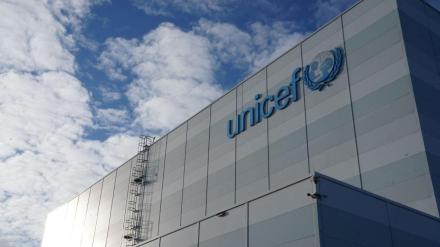On the eve of International Women’s Day 2025, the Embassy of Finland in New Delhi, in collaboration with UNICEF, launched a global call for applications from tech startups in low- and middle-income countries to develop fem tech solutions aimed at empowering women and girls. This initiative leverages technology to tackle the systemic barriers that women face in areas like health, education, and socio-economic participation.
According to an official statement from the Finnish Embassy, New Delhi, Fem tech, which refers to technological solutions designed to improve the health, wellness, and economic outcomes for women, is central to this new effort. The UNICEF Venture Fund will provide grant funding and one year of mentorship to early-stage startups working on open-source solutions that incorporate advanced technologies like Artificial Intelligence (AI) and blockchain.
Finland, a founding partner of the UNICEF Venture Fund, is committed to supporting innovations that create meaningful change, especially in emerging economies like India. To kick off the initiative, the Embassy of Finland hosted a gathering of representatives from both the private and public sectors in New Delhi, marking the beginning of an annual fem tech call for applications, which will run through 2030.
“Women and girls represent half of the world’s population and half of its potential,” said Kimmo Lähdevirta, Ambassador of Finland to India. “Investing in fem tech solutions is essential to unlocking their full socio-economic potential. Finland and UNICEF are united in their mission to accelerate innovation in emerging economies like India to make a global social impact.”
Despite progress in many areas, women and girls around the world still face significant challenges. In 2023, one in five young women were married before the age of 18, and millions of girls continue to suffer from harmful practices like genital mutilation. Cervical cancer, while preventable, remains one of the most common causes of death among women globally. Additionally, many women are excluded from education, employment, and financial services, with the greatest disparities seen in Central and Southern Asia.
This global call for fem tech solutions comes at a critical time when innovative approaches are urgently needed. By harnessing cutting-edge technologies like AI and blockchain, UNICEF and Finland aim to identify and scale solutions that can improve healthcare access, enhance financial inclusion, and provide economic opportunities for women and girls in developing regions.
“The potential for AI and blockchain to create social impact is vast,” said Cynthia McCaffrey, UNICEF Representative in India. “These technologies can offer transformative solutions that directly address the needs of women and girls, helping to close the gap and create a lasting social change.”
For over a decade, the UNICEF Venture Fund has been at the forefront of supporting breakthrough technologies in low- and middle-income countries. This new initiative builds on that legacy, aiming to double the impact of its investments by 2030. The support of key partners, including the Ethereum Foundation and the Swedish International Development Cooperation Agency (Sida), will help make this ambitious goal a reality.
In preparation for this launch, the UNICEF Venture Fund conducted comprehensive research into the fem tech landscape in emerging economies. By engaging with communities of innovators, industry experts, and value-driven partners, the Fund has identified key opportunities for growth and development. The initiative will be further supported by regional challenges in Africa, Southeast Asia, and the Middle East, in partnership with Gitex Global.
This new phase of the UNICEF Venture Fund’s commitment to fem tech is designed to amplify the voices of women and girls, ensuring that their needs and experiences are central to technological development. The annual calls for applications will continue until 2030, with the aim of developing scalable, impactful solutions that tackle the most pressing issues affecting women worldwide.
